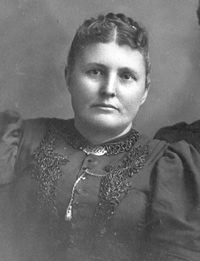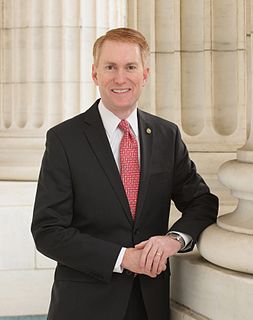A Quote by Etta Semple
Every true Freethinker accords to each individual the right to mental freedom. Where this freedom leads is no concern of others so long as it encroaches not upon their rights.
Quote Topics
Related Quotes
In these sacred documents are embodied eternal principles that no man, group of men, or nation has the right to withhold from others. Here is our basis for freedom of individual achievement. Our Constitution with its Bill of Rights guarantees to all our people the greatest freedom ever enjoyed by the people of any great nation. This system guarantees freedom of individual enterprise, freedom to own property, freedom to start one's own business and to operate it according to one's own judgment so long as the enterprise is honorable.
Freedom is necessary for two reasons. It's necessary for the individual, because the individual, no matter how good the society is, every individual has hopes, fears, ambitions, creative urges, that transcend the purposes of his society. Therefore we have a long history of freedom, where people try to extricate themselves from tyranny for the sake of art, for the sake of science, for the sake of religion, for the sake of the conscience of the individual - this freedom is necessary for the individual.
No-one can compel me to be happy in accordance with his conception of the welfare of others, for each may seek his happiness in whatever way he sees fit, so long as he does not infringe upon the freedom of others to pursue a similar end which can be reconciled with the freedom of everyone else within a workable general law ? i.e. he must accord to others the same right as he enjoys himself.
A freedom which is interested only in denying freedom must be denied. And it is not true that the recognition of the freedom of others limits my own freedom: to be free is not to have the power to do anything you like; it is to be able to surpass the given toward an open future; the existence of others as a freedom defines my situation and is even the condition of my own freedom. I am oppressed if I am thrown into prison, but not if I am kept from throwing my neighbor into prison.
The individual is defined only by his relationship to the world and to other individuals; he exists only by transcending himself, and his freedom can be achieved only through the freedom of others. He justifies his existence by a movement which, like freedom, springs from his heart but which leads outside of himself.
Churchmen are quick to defend religious freedom; lawyers were never so universally aroused as by President Roosevelt's Court bill; newspapers are most alert to civil liberties when there is a hint of press censorship in the air. And educators become perturbed at every effort to curb academic freedom. But too seldom do all of these become militant when ostensibly the rights of only one group are threatened. They do not always react to the truism that when the rights of any individual or group are chipped away, the freedom of all erodes.
In wanting freedom we discover that it depends entirely on the freedom of others, and that the freedom of others depends on ours. . . I am obliged to want others to have freedom at the same time that I want my own freedom. I can take freedom as my goal only if I take that of others as a goal as well.
I would like people to remember that I kept the peace when I was president and I worked for peace, that I espoused human rights in its broadest definition, not only freedom of speech but freedom of assembly, freedom of worship and trial by jury but also the right of people for people to have a decent home to live, food to eat, employment, healthcare, self respect, dignity. So I think the broad gamut of human rights, peace and freedom. I would like to be remembered for those things to the degree that I deserve it and I still have a long way to go.
The insistence on truthfulness does not disturb the freedom of the individual. The social obligation implied in Satyagraha turns the freedom of the individual into moral freedom. An atheist is free to say or to do what he likes, provided he does what he says and says what he does. So, in the context of social relations, the freedom of the individual is moral freedom.
We will freedom for freedom’s sake, in and through particular circumstances. And in thus willing freedom, we discover that it depends entirely upon the freedom of others and that the freedom of others depends upon our own. Obviously, freedom as the definition of a man does not depend upon others, but as soon as there is a commitment, I am obliged to will the liberty of others at the same time as my own. I cannot make liberty my aim unless I make that of others equally my aim.




































